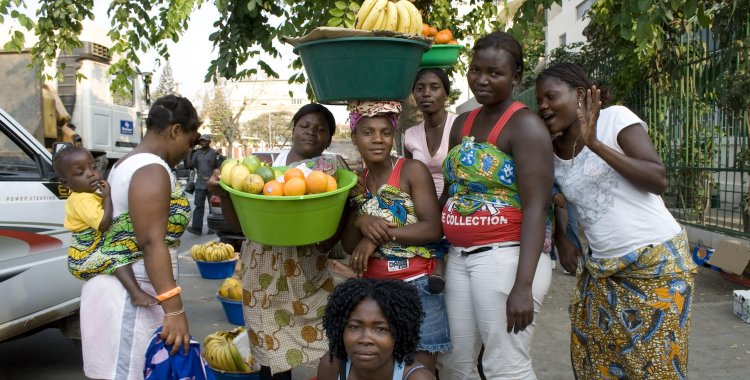Raul Tati, a UNITA deputy, responded to journalists in this way about the demonstration by zungueiras who, on Monday, wanted to march to Cidade Alta, the center of power, to contest the Commerce Reorganization Plan that aims to mitigate the disorderly sale in Luanda.
"It's the kind of situation you find when the State doesn't guarantee the citizens tomorrow", said the politician, prime minister of UNITA's "shadow government", pointing to "the accumulated errors of bad governance" as the origin of the problem.
"They want to order the city, they want to put order in the city, but that's where the so-called social conflicts come in. With the level of poverty and indigence we have, it's difficult to come up with norms to put the city in those criteria of the cities we know in the world, where one encounters these phenomena," he said.
Raul Tati admitted that selling everywhere "is not good" and gives "a bad look to the city", but, he stressed, "the fault lies with those who govern, and not with those who are doing it".
"To change things will take time, it is a matter of culture, not everyone is aware of what it is to build the city", said the deputy, predicting: "These situations will occur much longer, even with sticks".
The UNITA leader said that the vendors will continue to fight because "they have to survive" and stressed that the State's authority should not only be repressive, but also pedagogical.
Opposition political parties, he added, also make contributions for the good of the nation and he would like those in government to listen to these political actors, regretting that they had no prior knowledge of the Long-Term Strategy - Angola 2050, currently in public consultation.
According to Raul Tati, UNITA was only convened the day before the presentation of the document, at night, so it preferred not to comment on its content.
The strategy, launched last week, sets out the vision for Angola over the next 27 years in several areas.
"We were perplexed. These people did a closed job within the party system - the MPLA and now they come to present it to the nation (...). That's not how things work, it's as if the MPLA came to stay forever and this was not done even in the days of the single party", he criticized.
For the deputy, taking into account the multiplicity of parties, this type of document should undergo a more comprehensive work, so that it would serve even with alternation of power, stressing that UNITA would have participated, if summoned, to make a long-term strategy deadline for the country.







